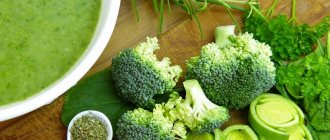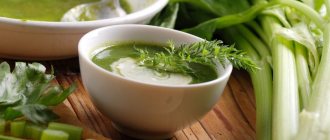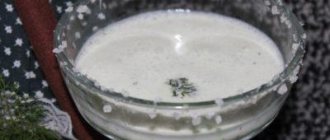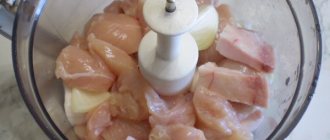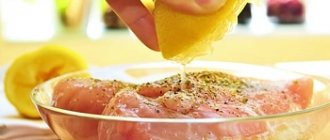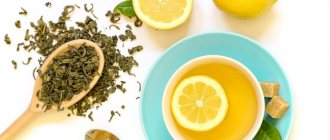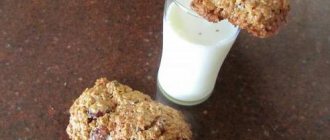- 3.1 How to squeeze juice out of lemons 3.1.1 Using a juicer
The benefits of fresh citrus juices have been known since ancient times. Due to the lack of heat treatment, the product retains nutrients and vitamins. Lemon juice is one of the leaders in the number of elements beneficial to human health.
How to make fresh lemon juice?
By following simple steps, you can prepare juice, which you can then use for any purpose. How to make lemon juice?
First, find the right extrusion tool. You can do this by hand using a citrus juicer or a food processor with a juicer function.
Cut the lemons in half. Squeeze the juice out of them into a bowl or cup. Make sure you get everything from each half. Add some sugar and water. Fresh lemon juice is ready, you can start preparing drinks based on it.
Composition and value of lemon juice
Fresh lemon is a source of a huge amount of microelements. It contains a large amount of B vitamins, vitamin P, vitamin E, and beta-carotene. In addition, 100 g of the product contains almost half of the daily value of vitamin C.
Calorie content per 100 g is only 22 kcal. The energy value of the product is as follows:
- proteins - 0.35 g;
- fats - 0.24 g;
- carbohydrates - 6.9 g;
- water - 92.31 g.
The mineral composition represents a whole spectrum of chemical compounds. Lemons are rich in calcium, iron, magnesium, phosphorus, sodium and potassium. They also contain rare elements such as selenium, zinc, manganese and copper.
Juice from oranges and lemons
In addition, you can prepare orange-lemon fresh juice. Everyone will appreciate natural juice with the addition of a small amount of sugar. For it you need:
- 3-4 regular size oranges;
- half a lemon;
- 2-3 tbsp. l. sugar (to your taste).
Peel the oranges and add the pulp to a blender. Alternatively, you can use a manual juicer to ensure the drink is immediately free of film or seeds. Strain the resulting puree through a sieve or mesh to remove any solid fibers. Squeeze the required amount of juice from the lemon and add sugar. Cool and add ice cubes before serving.
Do not make the drink in advance - maximum 30 minutes before serving. Add ice cubes just before serving, otherwise the juice will become too diluted. Adjust the proportion of orange and lemon to your taste.
What are the benefits of lemon juice?
The benefits of drinking freshly squeezed juice are undeniable. It is most widespread in cooking as an addition to various dishes or drinks. Due to its composition, it is successfully used not only as a food product, but also in various cosmetics and even medicines.
Important! Due to the large amount of acids, it is not recommended to drink pure lemon juice. The ideal option would be to dilute it with water in a ratio of 1:3.
Ascorbic acid, found in large quantities in lemon, is an excellent immune system stimulant. During the off-season, its regular use can reduce the risk of colds and flu.
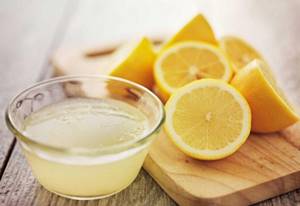
In addition, regular consumption of fresh lemon juice helps normalize blood sugar and cholesterol levels. Lemon is an excellent source of energy. It perfectly charges the body, having a tonic effect on it.
The drink is very useful for depression and sleep disorders. The potassium contained in lemon is an excellent means of combating anxiety and low mood. This drink will also help restore intestinal function due to the content of a large amount of antioxidants.
Is it possible to drink lemon juice on an empty stomach?
After waking up, the body tissues are dehydrated and need nutrition. Adding a few drops of fresh lemon juice to a glass of water restores the acid-base balance. In addition, this lemon juice in the morning allows you to start the kidneys as efficiently as possible, helping to remove harmful waste and toxins from the body.
Drinking lemon juice on an empty stomach can also harm the body. Due to the large amount of acid, an excessive amount of this drink in the morning can destroy tooth enamel, so it is recommended to drink it through a straw. You should also be careful or even refrain from taking it for people who have diseases of the digestive system - gastritis, ulcers and pancreatitis.
The benefits of lemon juice in dietetics
The first rule of dietetics is to bring the digestive system back to normal. Nutritionists use the beneficial properties of lemon juice to improve metabolism and overall rejuvenation of the body. The vitamins and chemical compounds it contains strengthen the digestive system and gallbladder, and eliminate excess toxins.
Fresh lemon juice contains pectin, a polysaccharide responsible for carbohydrate metabolism. Its main function is to block the ability of the body to instantly absorb fast carbohydrates. Uniform absorption of carbohydrates is not only the basis of proper nutrition, but also allows you to maintain normal blood sugar levels.
Using the beneficial properties of juice to combat excess weight is based on saturating the body with nutrients. In addition, when acid enters the mouth or onto the walls of the stomach, it stimulates the receptors responsible for burning excess carbohydrates. The body begins to process their excess.
Benefits of lemon juice for skin
The beneficial effects of lemon on the skin have been known for a long time. To use it correctly, you need to lightly moisten a sponge or sponge in it, and then apply it to your face, avoiding contact with your eyes. The substances contained in its juice allow you to achieve an even skin color, as well as give your face a natural glow.
In addition, fresh juice can combat problem areas on the skin. It perfectly helps smooth out wrinkles, reduce freckles and darken age spots. The body will receive the greatest benefit when combining cosmetic procedures with a proper diet, which includes fresh lemon juice.
Benefits for hair
Fresh lemon juice has a beneficial effect on hair and scalp. Compared to other citrus fruits, lemon contains the highest amount of vitamin P - rutin. In combination with vitamin C, it can have a comprehensive effect on restoring hair and scalp. Using lemon juice provides benefits in the following areas:
- relief from itching, dandruff and seborrhea;
- normalization of oily scalp;
- reducing the intensity of hair loss;
- increased hair growth;
- strengthening the roots and ends of hair.
The most popular way to use juice is as a hair mask. In order to prepare a nourishing mask, you need to mix lemon juice, olive oil and full-fat milk in a 1:1:1 ratio. The resulting mixture is applied to the hair for 20 minutes, then washed off with shampoo. The benefits of such a mask are colossal - hair ceases to be dry and brittle and acquires a natural shine.
The benefits of lemon juice for oncology: myth or reality
According to recent research, lemon extract has miraculous powers against cancer cells. It destroys them without harming healthy tissues. Compared to chemotherapy, such treatment does not cause harm to the body, and its benefits in some respects are several times greater. Citrus is actively used in addition to the treatment of breast, lung or colorectal cancer.
According to the results of an experiment conducted by European scientists on people, the real effectiveness of the lemon juice treatment method was proven. The control group of patients had to eat 150 g of fresh lemon or drink an equivalent amount of juice 4 times a week. Test results showed that the disease had completely stopped progressing. In addition, the general condition and well-being of the test subjects improved significantly.
Further research in this area showed that consuming 75 g of citrus per day can completely stop the development of the disease. Unfortunately, lemon only blocks the growth of cancer cells, but cannot completely overcome the disease. Its regular use in conjunction with competent treatment helps improve the general condition of patients.
Classic lemonade recipe
This is the perfect homemade lemonade based on fresh lemon juice with balanced sweetness and acidity. It will require the following:
- a glass of fresh juice (from 10 to 12 lemons);
- half a glass of sugar;
- a pinch of salt;
- 3 glasses of cold water;
- a few pieces of ice.
Mix or beat the juice and sugar until the latter is completely dissolved (read above for how to make fresh lemon juice at home). Add salt and water and stir. Pour into a carafe with ice. Serve in ice-filled glasses.

Restrictions and contraindications
Despite all the benefits of lemon juice, it can cause real harm to some groups of people. First of all, we are talking about people prone to allergic reactions. They should avoid both pure juice and dishes that contain this component. Among other people for whom lemon is contraindicated, the following categories are usually distinguished:
- people with diseases of the gastrointestinal tract: the acid contained in citrus can harm the mucous membranes of the stomach and intestines; during exacerbations it is necessary to completely refrain from consuming it;
- persons suffering from dental diseases, caries and pulpitis: in such cases, juice getting on exposed nerves leads to severe pain;
- nursing mothers: excessive consumption of this strong allergen can lead to impaired health of the unborn child;
- children under 3 years of age: children's sensitive bodies are unable to completely process lemon juice; its use often causes rashes and diathesis in young children.
People with high and unstable blood pressure should pay special attention to the possibility of drinking lemon juice. Drinking fresh lemon juice with low or high blood pressure can be beneficial, normalizing your overall health.
Drink with honey and basil
This simple lemonade combines the flavor of fresh basil with the sweetness of honey. You will need:
- 1 cup lemon juice;
- half a glass of honey;
- 2 cups lightly compacted basil leaves;
- a pinch of salt;
- 3 glasses of cold water;
- pieces of ice;
- basil leaves for decoration.
Whisk lemon juice, honey, basil leaves and salt in a blender. Mix on high speed until smooth, about 1 minute. Strain through a mesh strainer into a pitcher. Remove solids. Pour in cold water, stir until smooth, add ice. Serve in chilled glasses garnished with basil leaves.
Ginger lemonade
This is a tart and refreshing drink, reminiscent of gingerbread in aroma. For it you need:
- a piece of ginger 5 cm long, peeled and cut into small pieces;
- 1 glass of freshly squeezed lemon juice;
- half a glass of sugar;
- a pinch of salt;
- 1 glass of cold water;
- 2 glasses of plain sparkling water;
- pieces of ice.
Combine ginger, lemon juice, sugar, salt and water in a blender. Mix on high speed for one minute. Strain through a mesh strainer into a deep vessel. Add sparkling water and ice and stir thoroughly. Serve immediately in glasses filled with ice.

Manner 1
- If citrus fruits were previously placed in the refrigerator's fruit and vegetable drawer, remove them and keep them warm in the kitchen. In an hour, the fruits will reach a temperature no lower than room temperature; it is easier to extract juice from these specimens than from those that have been cooled for a long time.
- It's all about the low temperature: the temperature only contributes to the hardening of the walls in the citrus cavity, which does not allow the juice to come out in sufficient quantities. When the fruit has rested slightly, you can begin classical squeezing in the way you are used to doing it.
- If you don’t have time to wait, then pour heated water into a deep bowl, but not boiling water. Dip the fruit into the liquid and let it warm up. The water cools down quickly, so replace it with new one. It is enough to hold the apple for about 3-10 minutes, and then start squeezing. The juice will come out in much larger quantities.
Lemonade with condensed milk
This Brazilian-style drink is made with fresh lemon juice and condensed milk. This is a thicker, sweeter version of lemonade that may be a little off-putting for some. You will need;
- half a glass of freshly squeezed lemon juice;
- 3/4 cup condensed milk;
- a pinch of salt;
- 3 glasses of cold water;
- ice cubes.
Blend the lemon juice, condensed milk, salt and water in a blender until smooth and frothy, about 30 seconds. Pour into a jug, add ice. Serve immediately.
Raspberry-lemon fresh juice
This is a delicate and aromatic drink that includes two healthy natural juices. For it you will need:
- 500 grams of raspberries;
- 1 glass of fresh lemon juice;
- half a glass of sugar;
- a pinch of salt;
- 3 glasses of cold water;
- some ice;
- whole large raspberries and lemon slices.
Mix raspberries, lemon juice, sugar and salt in a blender at high speed until smooth. Strain through a mesh strainer into a deep vessel. Remove solids. Add cold water, whisk lightly, add ice. Serve in ice-filled glasses, garnished with raspberries and lemon slices.

Lychee and lemon drink
Sweet fresh lychees in this drink are perfectly complemented by fiery Thai chili and tart lemon juice. This combination results in a balanced, refreshing lemonade. You will need:
- 500 grams of lychee, peeled and peeled;
- 1 cup fresh lemon juice;
- 3/4 cup sugar;
- a pinch of salt;
- half a small red Thai chili;
- 3 glasses of cold water;
- enough ice cubes.
Combine 1 cup lychee pulp, lemon juice, sugar, salt and Thai chili in a blender. Mix on high speed until smooth, about 1 minute. Strain through a mesh strainer. Remove solids. Add cold water and stir thoroughly. Grind the remaining lychee pulp and place in a container with the drink. Put some ice on it. Serve in ice-filled glasses garnished with whole chiles.
Blackberry and sage lemonade
Many people think of sage as a medicinal herb, but in fact, its camphorous and slightly refreshing flavor pairs well in this sweet drink made with blackberries and lemon. You need the following:
- 500 grams of blackberries;
- a glass of fresh lemon juice;
- half a glass of sugar;
- a pinch of salt;
- a bunch of fresh sage;
- 3 glasses of cold water;
- ice cubes;
- additional blackberries and sage leaves.

Blend blackberries, lemon juice, sugar and salt in a blender bowl at high speed for about 1 minute. Place the sage leaves in the bottom of a deep bowl and crush with a wooden spoon. Pass the blackberry puree through a fine mesh strainer. Remove solids. Pour in cold water, stir well, add ice. Serve in ice-filled glasses, garnished with blackberries and sage leaves.
Peach and thyme lemonade
This thick, flavorful and frothy peach lemonade is lightly flavored with thyme. It can be used both independently and as a base for alcoholic cocktails. You will need the following:
- 3 fresh peaches, coarsely chopped;
- 1 cup fresh lemon juice;
- 3/4 cup sugar;
- a little salt;
- a bunch of thyme;
- 3 glasses of cold water;
- some ice;
- peach slices and thyme leaves for garnish.

Combine peaches, lemon juice, sugar and salt in a blender. Beat on high speed for one minute. Place the thyme in the bottom of a deep vessel and crush lightly. Strain the blender mixture through a sieve. Add cold water, stir, add ice cubes. Serve in glasses filled with ice and garnish with peach slices and thyme leaves.
Method 2
- This technology is often used by professional chefs around the world. The bottom line is that the citrus must first be placed in the freezer and then sharply heated in the microwave. No, no, and if the contents inside the fruit freeze, they will automatically increase in volume. On top of this background, the formed ice tears the membranes, and the juice then comes out more easily.
- When you keep the fruit in the freezer, the beloved will harden and cannot be crushed. Microwave the product for exactly 45 seconds, it all depends on the power of the device. Then arm yourself with a sharp knife, chop the citrus and squeeze the contents out of it.
- If you don’t want to experiment with freezing and then thawing the offspring, then do something different. To increase the amount of final fresh juice by 30% or even more, put the citrus in the microwave without keeping it in the cold beforehand. Set it to about 15 seconds. You need to get the peel warm. After the timer signal, take out the fruit and try to squeeze out the liquid.


